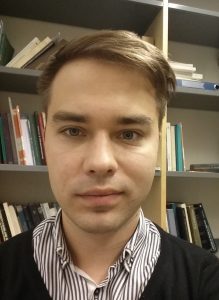
| Mikko Posti, Post-doctoral researcher War and Identity in Later Medieval Theological and Philosophical Thought |
My research project War and Identity in Later Medieval Theological and Philosophical Thought is a study of different identity shaping strategies employed in debates on war and its justification in 13th and 14th century theological and philosophical sources. I will place special emphasis on the use of theological concepts within the source material.
The theological underpinnings of the medieval discussions regarding war have not received sufficient attention in modern historical scholarship. I will ask how the medieval theorists employed e.g. the concepts of heresy and paganism to marginalize their political adversaries. Did a shared Christian faith allow for a more positive recognition of the political opponents in contrast to pagans?
Church Father Augustine held that wars fought for the sake of future peace and the realization of divine justice were good, and ultimately founded upon God’s good plan for humanity. I will ask how the Augustinian idea of divine providence directing human history was treated in the medieval universities after the introduction of Aristotelian philosophy to the university curricula.
The translation of Aristotle’s political works marked an important shift in the academic debate concerning war beginning from Albert the Great and Thomas Aquinas. Aristotle’s Politics turned medieval authors to think of warfare in terms of more established city-states and kingdoms, instead of local quarrels between individual princes. This development, I argue, may have had a more profound influence on the nascent national identities in 13th and 14th centuries than current scholarship has established.
